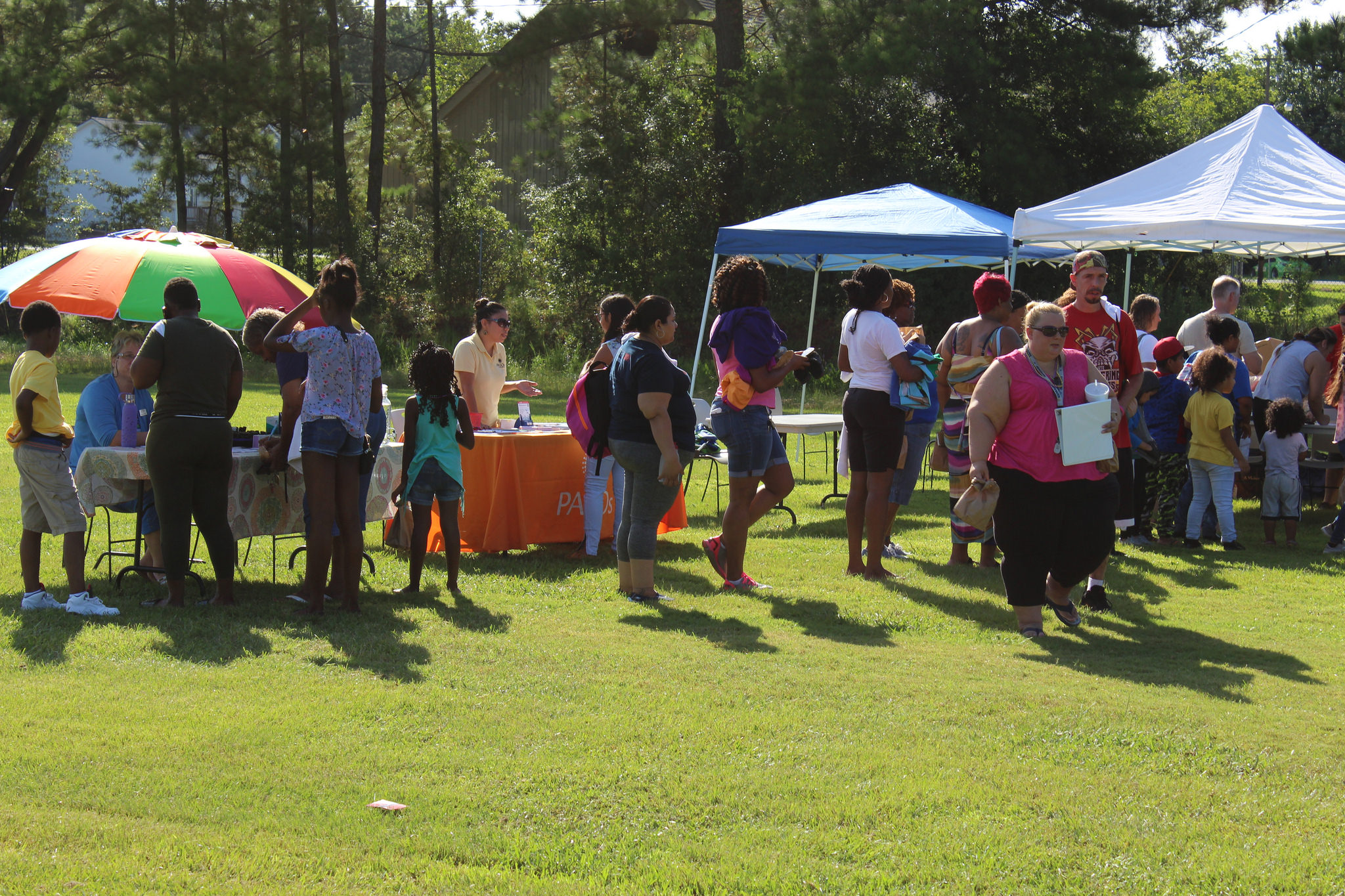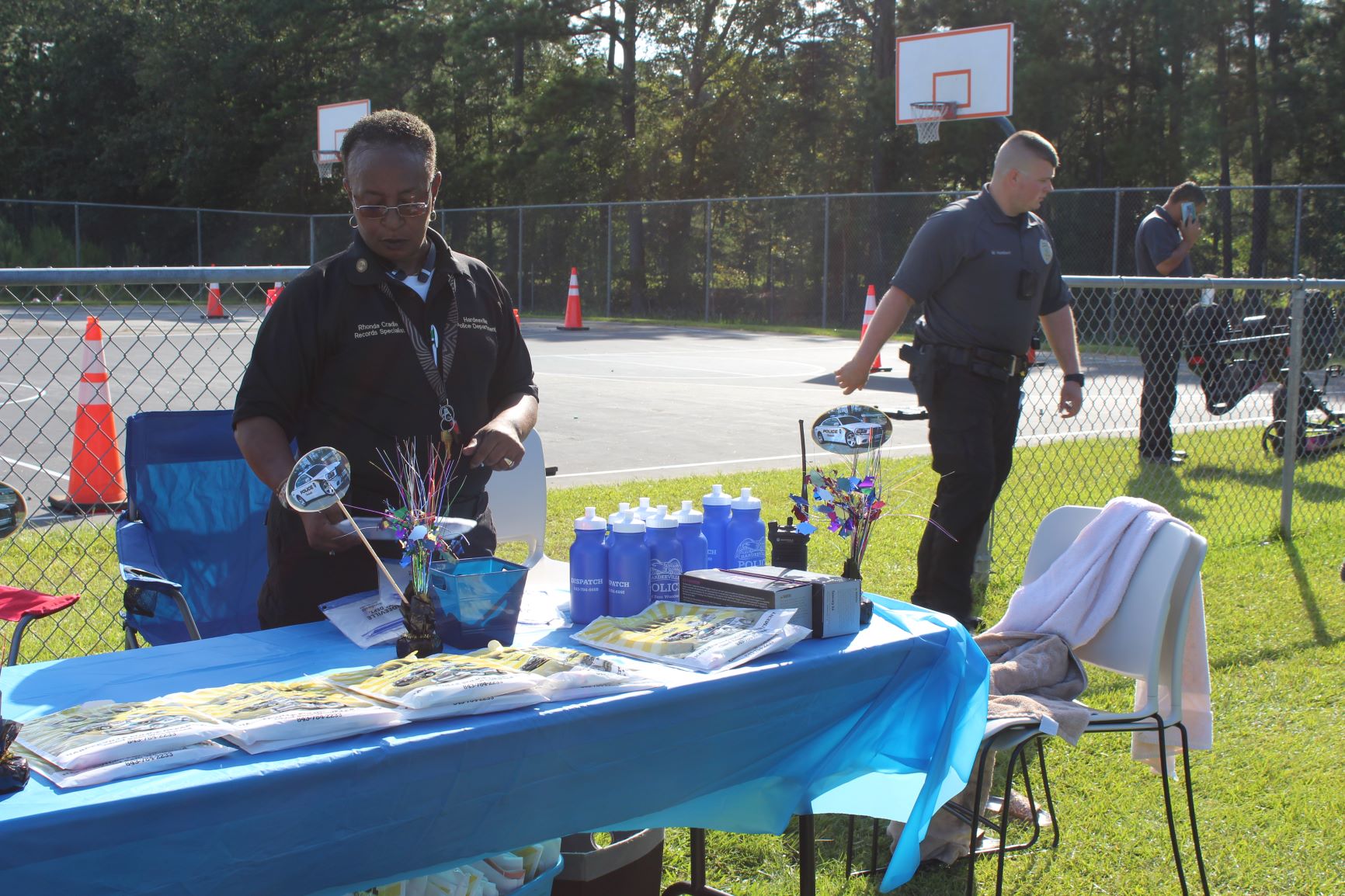From a police department program that checks on senior citizens to a small town collecting pennies to buy holiday presents for children in need, cities and towns work each day to make life a little easier for those who need extra help.
Here is a look at four examples of cities reaching out to ease the burden for some of their residents.
Columbia: Encouraging kids to save
Columbia City Councilwoman Tameika Isaac Devine said she is especially passionate about opportunities for youth and financial empowerment. The "Columbia Kids Save" children's savings account pilot program allowed her to bring both of those ideas together.

The children's savings account partners with local banks and Richland School District One to provide seed money and incentives for 5K students at Watkins-Nance Elementary School, a Title One school in Columbia. Through the program, every kindergarten student who enters Watkins-Nance can opt-in to the program. Once parents decide to sign up, the city opens a savings account for each child with a $50 deposit. The city will then match up to another $50 that the student saves.
Devine said the program is the first by a South Carolina city. It is managed and monitored by the City of Columbia Community Development Department's "Bank On" Columbia program coordinator. Each account will be monitored to see if deposits are being made throughout the year and matching deposits will be made periodically.
Watkins-Nance Elementary School staff members explain the benefits and encourage students and parents to save and participate in financial education.
Devine said she learned about children's savings accounts over the past few years while serving on the National League of Cities Council on Youth, Education and Families.
"The concept revolves around the city supporting children to build savings to go to college.
If children have money saved, they can see themselves going to college. It helps the graduation rate," she said. "I was intrigued by the program. Looking at what the city is doing with economic empowerment, this was a natural to add."
The program started this summer, with South State Bank, Security Federal and First Citizens each contributing $5,000 in seed money that allows the pilot program to be funded for two years. South State Bank will house all of the children's savings accounts and will collect monthly deposits at Watkins-Nance Elementary School.
"Those are some of the most needy of our kids. It's a good place to start," Devine said. "Our goal is to educate the child and the family as well. Young people will have financial education through the school and from our banking partners, and parents will come in for financial education as well. If we can get the kids excited about saving, we can teach the parents. It builds financial literacy in the adults as well."
While the seed money is available just for the first year, the program will follow the students until they graduate from high school, with possible other incentives added in over the years, she said.
Devine's advice for other cities looking at establishing children's savings accounts is to not reinvent the wheel; many cities around the country are setting up programs.
"I'd tell other cities, talk to others who have done it and then look at your community and what would work there. Things that work in St. Louis may not work in South Carolina, but there are some things they do that can be perfect for us. Look at how we can tailor it to us."
Hardeeville: Starting the school year right
In Hardeeville, city leaders want to be sure children start the school year ready to learn — and they throw a party to make sure the kids are excited about heading back to the classroom.

The City of Hardeeville connects with the residents through a back to school bash by providing a fun program while filling the needs of the community. Photo: City of Hardeeville.
City officials collect school supplies each year, filling a bus with pencils, paper and other necessities that are distributed to the district's schools. On the Saturday before school starts in August, the kids come together to celebrate the end of the summer and the start of a successful school year.
"We try to build more community support and provide service to the community. It's a huge partnership effort, and there's no charge to the taxpayers," said Jennifer Combs, Hardeeville's parks, recreation and tourism director.
Hundreds of kids and their families filled the Hardeeville Recreation Complex for free food, music, inflatable waterslides and games — along with information about ways to get involved in community programs.
"As the parks and recreation director, the most important aspect is providing services to the community where there is a need. This is what residents want. We're reaching out — not just here for fun programs — but to provide programs and events that are filling the needs of a community," Combs said.

The City of Hardeeville uses the back to school bash as a opportunity to provide school supplies to residents and raise awareness of community programs. Photo: City of Hardeeville.
Along with the school supplies that were delivered through the pack the bus campaign, additional supplies were given out at the party.
"Some of these kids may not have access or means to get these school supplies. We packed up drawstring bags with supplies on the list for the Jasper County School District. We gave them a lot of what they needed," said Brittany Thomas, the programs and partnerships manager with the parks and recreation department. "We wanted to make sure they had a fun event to get them pumped up for a school year. This is a community effort to give these children and families the support and information and resources to be able to start off the school year."
Surfside Beach: Calling on the elderly
A new community assistance program started in Surfside Beach this year, allowing for the town to check in on its many senior citizens, some of whom live alone without any family nearby.
The senior watch program features a computer-aided dispatch system that prompts the police dispatcher to call and check on elderly residents who register for the program, said Police Chief Kenneth Hofmann. If there is no answer at the home, the police department reaches out to the resident's emergency contacts. If there is still no response, the department dispatches an officer to the house. The timing of the calls is tailored to each person, with some people wanting more check ins than others.
The program also allows special needs families to provide specific information if a certain type of response is needed when officers are called to a home. The information is available if a call comes in for help at that address.
"We came up with this concept that was initially targeted at identifying senior citizens in the community, who may be far away from their families, may be shut-ins, may live by themselves. This is a way we could have contact with them by being proactive on our part," he said.
Hofmann said the town had a couple incidents where elderly residents had fallen in their homes and weren't able to immediately get help, including one who was alone for three or four days before someone checked in. "We may not be able to prevent that, but this is a way we can avoid situations when an elderly person is not heard from," he said.
The police department asks residents to fill out a form with contact information for relatives. Hofmann said the department held three events to push enrollment — the family fest, the fire department open house and the senior citizens fair.
He said the town wanted to do everything it could to assure the safety of elderly residents but also reach out to people who don't tend to call the police.
"It's another way to have our officers engage the community," Hofmann said. "It's another way to open lines of communication between a good portion of our population that we may not hear from for years at a time."
The chief said the town has also worked with families and advocacy groups for special needs alerts. For example, if a family has an autistic child, they may need a special type of response from law enforcement, perhaps one that doesn't use loud sirens. "They tell us what is the best type of police response for them," he said.
Norway: Pennies add up
Think pennies aren't worth much? To the tiny town of Norway in Orangeburg County, those one-cent coins were able to spread a lot of happiness to children during the holidays.
Mayor Sara Ann Johnson said this is the third year Norway is asking for donations for "Pennies for Presents," a way to raise money to buy gifts for needy children at Christmas.
The first year, she said the town was able to buy a $25 gift for about 18 children. Last year, about 44 children received gifts from proceeds from the pennies. They also raised enough to buy food for about 25 families in need.
She said the city sends letters to churches and other organizations asking for pennies and puts a collection jar out in city offices all year. So when people pay bills, if they have a few pennies leftover, they drop them in the jar.
Families fill out applications for presents for underprivileged children who may not get a lot for Christmas. A party is held in late December, and Santa Claus gives out the toys to the children.
"It means a lot to see kids come out and get those presents. It makes them happy," Johnson said. "And it's joyful to see those kids' faces."
